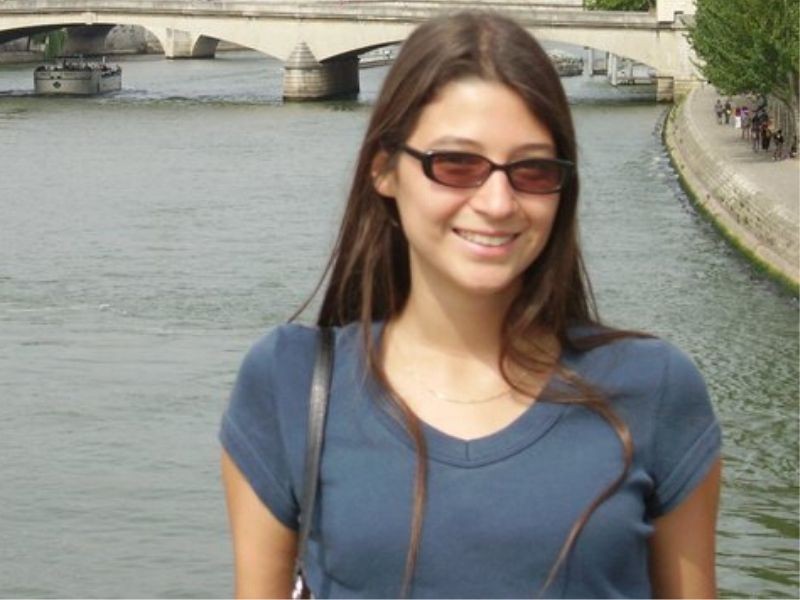She is a mathematics professor at the University of Illinois at Chicago. Her name is Dima Sinapova. She lives in Chicago, having gone to USA in 1999. Her family is also overseas – her parents live in Iowa, her brother is in Boston. They remained separated at Orthodox Easter and celebrated together online – each one in front of their web cameras and with their Easter eggs. “It wasn’t much of a celebration but it was the best we could do,” says Dima Sinapova in an interview for Radio Bulgaria:
“At the moment I am working from home, I am busy with my pursuits in mathematics so I never stopped working despite the state of emergency. My plans for the summer are to come to Bulgaria in August but we shall see how things will turn out. Now, with the emergency measures, I lecture three times a week, and it is all online. I have usually made notes before my online meetings with students. It isn’t the same as at the university. The state of emergency in Chicago is the same as in Bulgaria. The difference is that here you are allowed to go to the parks, though not in groups and with distancing control. Most people who go to the parks are either alone, or in couples or with their families. But the sports grounds are closed. And if there is a gathering of many people or a café or a restaurant is reported open then the police are there immediately. But they do not fine people, only businessmen if they have opened any catering establishment despite the ban. People here are not afraid of law enforcement.
 I am not in contact with many people now, mostly coworkers or the parents when we have parent-student meetings. Most of them say they are very busy with their children, I too am finding I have less free time now than I did before these measures. Besides my job, I have them to tend to at home. Distance learning is not obligatory here but I try to keep up with the classes online, following, approximately the standard 8.30 to 3.30 classes. Taken from the point of view of acquiring knowledge, they now learn more. But socially they apprehend less because they do not have contact with their friends. On the whole everyone here is also complaining about the way things are but they support the closing of schools, though nobody is happy about it.
I am not in contact with many people now, mostly coworkers or the parents when we have parent-student meetings. Most of them say they are very busy with their children, I too am finding I have less free time now than I did before these measures. Besides my job, I have them to tend to at home. Distance learning is not obligatory here but I try to keep up with the classes online, following, approximately the standard 8.30 to 3.30 classes. Taken from the point of view of acquiring knowledge, they now learn more. But socially they apprehend less because they do not have contact with their friends. On the whole everyone here is also complaining about the way things are but they support the closing of schools, though nobody is happy about it.
People in the US are definitely afraid of the infection. I live in a high-rise building right next to the lake in Chicago and most people now prefer to be by themselves when they take the elevator. Even in the lobby the doormen give out masks even though wearing masks is not mandatory. Outside, half of the people have masks on, or a scarf or something else because they are afraid,” says Dima Sinapova. “Here too most people worry about the economy, millions have applied for unemployment benefits in the past weeks. The economic consequences will be with us for a long time after the pandemic is over. But I think that once the restrictions are lifted, social life will go on as before. Probably even more so because after being in isolation for so long everyone will want to go back to face-to-face communication.”
Photos: math.uic.edu and Facebook/Dima SinapovaBulgarian scientists in Antarctica traditionally celebrate the New Year several times, depending on the presence of foreigners in the base, the head of the Bulgarian Antarctic Expedition, Prof. Dr Christo Pimpirev, told BNR Burgas. One of the..
Bulgarians' assessments of the past year in personal terms differ sharply from their views on the situation in the country and the world , according to a nationally representative survey conducted by polling agency Alpha Research between December 1 and..
For the fifth consecutive year, the Sketches of Sofia initiative have delighted Sofia's residents with gifts placed at the city's statues . Every year, photographer Ivan Shishiev and his wife buy books for Sofia residents, wrap them up and place them at..
The clock on the facade of the State Puppet Theatre in Stara Zagora has long been a symbol of the city. It was set in motion in 1977 and is unique on..
The year 2024 was marked by political instability and confrontation - not so much over ideas for solving Bulgaria's long-standing governance puzzle, but..

+359 2 9336 661
